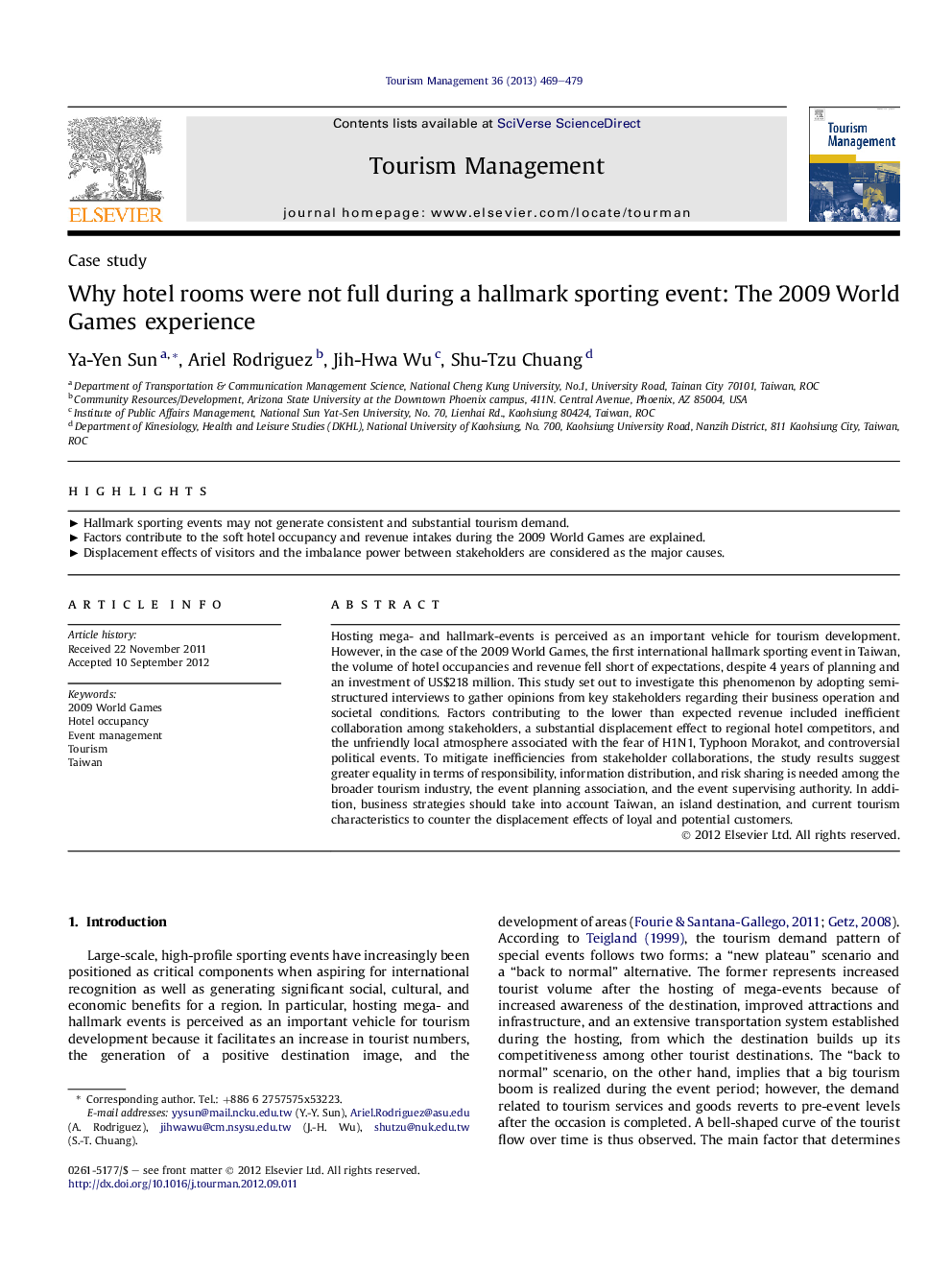| Article ID | Journal | Published Year | Pages | File Type |
|---|---|---|---|---|
| 1012321 | Tourism Management | 2013 | 11 Pages |
Hosting mega- and hallmark-events is perceived as an important vehicle for tourism development. However, in the case of the 2009 World Games, the first international hallmark sporting event in Taiwan, the volume of hotel occupancies and revenue fell short of expectations, despite 4 years of planning and an investment of US$218 million. This study set out to investigate this phenomenon by adopting semi-structured interviews to gather opinions from key stakeholders regarding their business operation and societal conditions. Factors contributing to the lower than expected revenue included inefficient collaboration among stakeholders, a substantial displacement effect to regional hotel competitors, and the unfriendly local atmosphere associated with the fear of H1N1, Typhoon Morakot, and controversial political events. To mitigate inefficiencies from stakeholder collaborations, the study results suggest greater equality in terms of responsibility, information distribution, and risk sharing is needed among the broader tourism industry, the event planning association, and the event supervising authority. In addition, business strategies should take into account Taiwan, an island destination, and current tourism characteristics to counter the displacement effects of loyal and potential customers.
► Hallmark sporting events may not generate consistent and substantial tourism demand. ► Factors contribute to the soft hotel occupancy and revenue intakes during the 2009 World Games are explained. ► Displacement effects of visitors and the imbalance power between stakeholders are considered as the major causes.
